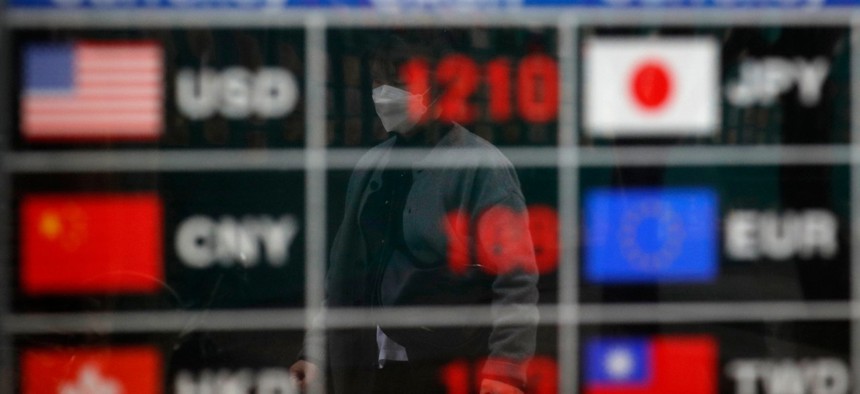Global Defense Spending Decline Expected As Nations Deal with Coronavirus
Experts see domestic projects taking priority over national security in the coming years.
After five straight years of growth, global defense spending is expected to decline in the coming years as nations deal with the economic fallout of the coronavirus pandemic, analysts say.
In 2019, global defense spending topped $1.9 trillion, according to the Stockholm International Peace Research Institute’s latest tally. The U.S. represents 38 percent of the world’s defense expenditures and with China, the two superpowers account for 52 percent of the world’s defense spending. But because of COVID-19, experts anticipate a shift government spending worldwide toward domestic projects and away from weapons and the military.
“What we can expect is that spending [is] really going to decrease,” Nan Tian, a defense spending expert with the institute, said Tuesday during a Stimson Center webcast. “We’ve seen this historically following the [2008 and 2009 financial] crisis where many countries in Europe really started to cut back on military spending.”
Even before the coronavirus sent the global economy into a tailspin, U.S. defense spending had been predicted to flatten in the coming years. Now with trillions of dollars being spent on massive coronavirus stimulus packages, flat defense spending levels could wind up being a best-case scenario.
“In today’s world with [coronavirus], flat defense budget, I think, is what everybody is hoping for because it could go the other direction; it could go negative,” Hawk Carlisle, president and CEO of the National Defense Industrial Association and a retired four-star commander of Air Combat Command and Pacific Air Forces, said in an interview Tuesday. “This is going to be years to climb out of.”
One reason for the expected spending dip: the deficit. Regardless of the results of the November presidential and congressional elections, deficit reduction is likely to become a priority. A recent estimate pegs the 2020 deficit at $3.8 trillion. But it is expected that a Trump re-election would keep Republicans in more of a spending mood.
“If the presidency goes to a Democrat, then Republicans are going to get more about being fiscal conservatives again sooner,” Todd Harrison, a defense budget expert with the Center for Strategic and International Studies, or CSIS, said during a Monday webcast. “If Trump wins a second term, we probably have another year or two reprieve from that.”
Mackenzie Eaglen of the American Enterprise Institute is wary that lawmakers eager to reduce federal spending in the wake of coronavirus bailouts could enact a deficit-cutting measure akin to the Budget Control Act of 2011, which capped defense spending annually between 2013 and 2021.
“The Budget Control Act by another name ... could come as fast as next [fiscal] year,” she said on the same webcast.
While defense and security spending is typically a top priority of Republicans and defense-minded Democrats, stabilizing the U.S. economy and healthcare could become a higher priority regardless of who wins the election and control in Congress. Among voters in both parties, there is wide public support for reducing expensive overseas military interventions.
“[I]solationism may exert a countervailing force, as there is demand to steer resources away from defense and towards domestic needs (healthcare, education, jobs),” Byron Callan, an analyst with Capital Alpha Partners, wrote in an April 23 note to investors.
“[W]e are seeing that awarding disproportionate resources to military spending may be weakening the resilience of other sectors in our economy,” Mandy Smithberger — director of the Straus Military Reform Project at the Center for Defense Information, part of the Project on Government Oversight — said on the Stimson Center webcast.
“I think we are going to be seeing real political debate about how much money should go to military spending, how much we should be prioritizing arms sales and interests of the defense industry,” she said.
Unlike the past decade when foreign arms sales, to some extent, were a backstop to weapon makers amid U.S. defense spending declines, this time around will likely be different since the world economy is dealing with coronavirus. Smithberger said low oil prices could weaken the buying power in the region that spends heavily on U.S. weapons.
While the U.S. and China remain the top two defense spenders, last year India and Russia jumped ahead of Saudi Arabia, which fell to fifth on the list. Germany climbed from ninth to seventh — jumping ahead of the U.K. and Japan. NATO allies collectively spent just over $1 trillion. All of that spending is likely to drop.




